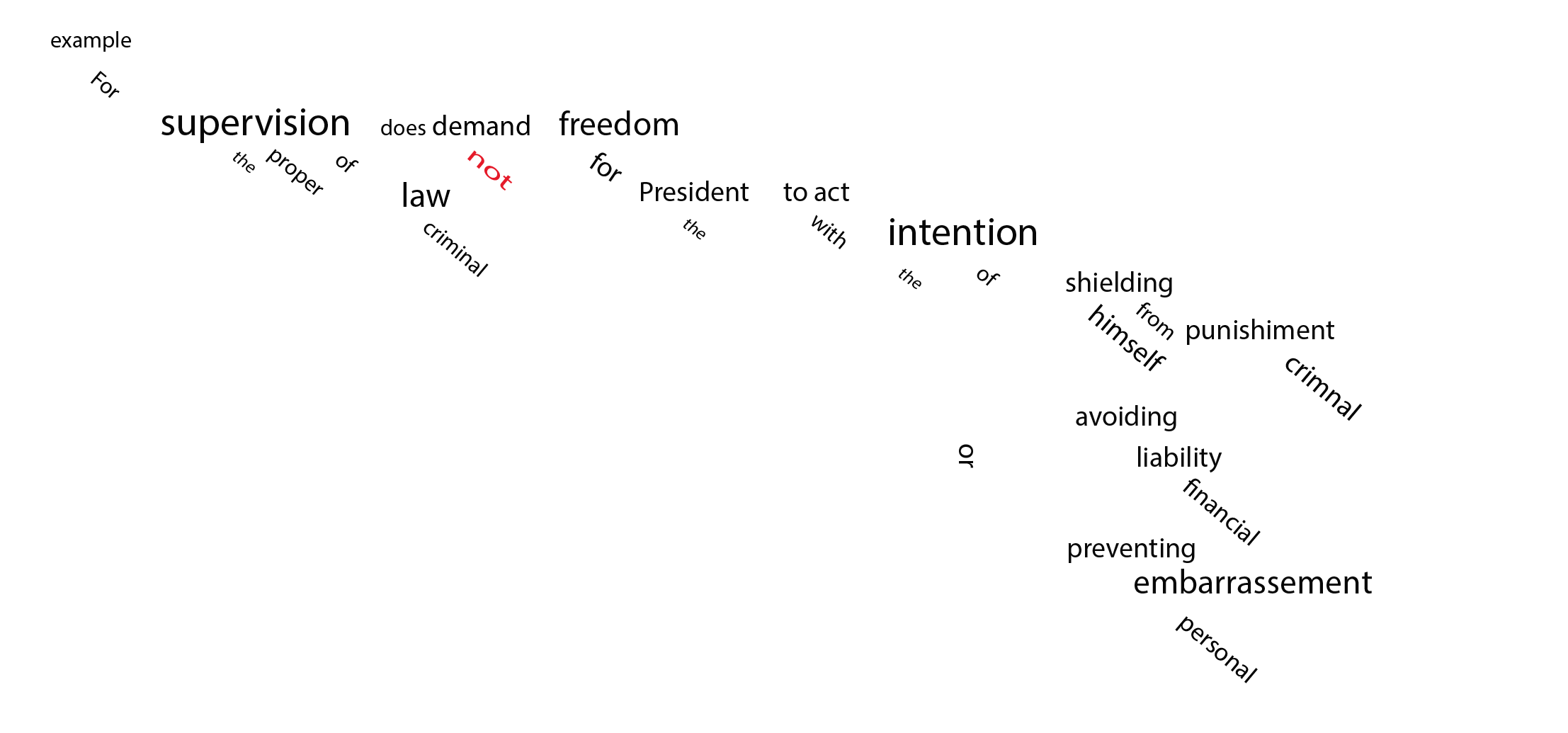
Diagrams: MUELLER REPORT Vol. II, Page 8
EXECUTIVE SUMMARY TO VOLUME II
... the President' s acts directed at witnesses, including discouragement of cooperation with the government and suggestions of possible future pardons, took place in public view. That circumstance is unusual, but no principle of law excludes public acts from the reach of the obstruction laws.
Constitutional defenses
Under applicable Supreme Court precedent, the Constitution does not categorically and permanently immunize a President for obstructing justice through the use of his Article II powers.
~
For example, the proper supervision of criminal law does not demand freedom for the President to act with a corrupt intention of shielding himself from criminal punishment, avoiding financial liability, or preventing personal embarrassment.

To the contrary, a statute that prohibits official action undertaken for such corrupt purposes furthers, rather than hinders, the impartial and evenhanded administration of the law. It also aligns with the President's constitutional duty to faithfully execute the laws. Finally, we concluded that in the rare case in which a criminal investigation of the President's conduct is justified, inquiries to determine whether the President acted for a corrupt motive should not impermissibly chill his performance of his constitutionally assigned duties. The conclusion that Congress may apply the obstruction laws to the President's corrupt exercise of the powers of office accords with our constitutional system of checks and balances and the principle that no person is above the law.